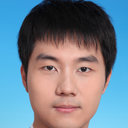Immunomodulatory effects of sleep deprivation at different timing of psoriasiform process on skin inflammation.
Keywords
Abstract
Sleep deprivation affects the pathophysiology of immune-inflammatory skin diseases such as psoriasis. Increasing efforts are directed toward exploring potential mechanisms involving sleep deprivation and immune responses. However, studies focusing on the effects of different timing of sleep deprivation on skin inflammation are lacking. This study thus investigated the immunomodulatory effects of paradoxical sleep (PS) deprivation at different timing of psoriasiform process on skin inflammation in the psoriasis-like mouse model. Male adult C57BL/6 mice were divided into 5 groups (each n = 5): control group (CON), IMQ-S2 group [treating with 31.25 mg imiquimod (IMQ) per day for 5 days with 48 h of PS deprivation on the fourth and fifth day], S2-IMQ group (treating with 31.25 mg IMQ per day for 5 days with 48 h of PS deprivation on the first and second day), 31.25 group (treating with 31.25 mg IMQ per day for 5 days) and 62.5 group (treating with 62.5 mg IMQ per day for 5 days). Compared with IMQ-S2 group and 31.25 group, S2-IMQ group mice had significant increase of IL-17A mRNA level in skin lesions and lymph nodes, and more severe cutaneous inflammation. However, IMQ-S2 group had the highest IL-1β mRNA level in skin lesions and the highest IL-6 mRNA level in lymph nodes among the three groups. Results of flow cytometry showed that frequencies of γδT cell, IL-17A+γδT cell, dendritic cell (DC) and MHCⅡ+ DC in lymph nodes of S2-IMQ group were significantly higher than IMQ-S2 group and 31.25 group, so was the frequency of γδT cells in skin lesions. However, the frequency of DCs in skin lesions of S2-IMQ group was significantly lower than IMQ-S2 group. These data suggest that PS deprivation at the early stage rather than the late stage of psoriasiform process exacerbates the skin inflammation through modulation of the immune system, which may involve that IL-1β and IL-6 stimulated by PS deprivation in turn increasing IL-17 expression through activation and proliferation of γδT cells and DCs migration.





